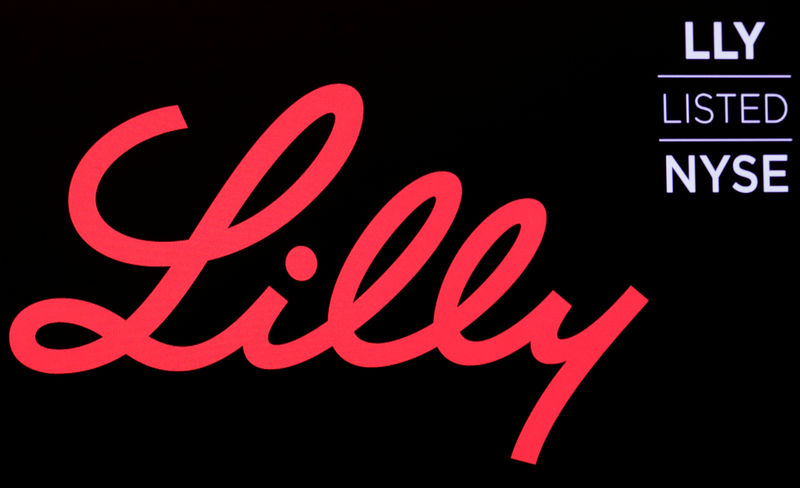INDIANAPOLIS - The U.S. Food and Drug Administration (FDA) has approved Eli Lilly and Company (NYSE:LLY)'s Kisunla™ (donanemab-azbt) for the treatment of adults with early symptomatic Alzheimer's disease, including those with mild cognitive impairment and mild dementia stage of the disease, who have confirmed amyloid pathology.
Kisunla, administered as a once-monthly intravenous infusion, is notable for being the first amyloid plaque-targeting therapy that allows for the cessation of treatment upon the removal of amyloid plaques. This could lead to reduced treatment costs and fewer infusions for patients.
In the pivotal Phase 3 TRAILBLAZER-ALZ 2 study, Kisunla showed a significant slowing of cognitive and functional decline by up to 35% compared to placebo over 18 months. It also reduced the risk of disease progression to the next clinical stage by up to 39%. The treatment was particularly effective in participants who were less advanced in their disease progression.
The study also found that Kisunla reduced amyloid plaques on average by 61% at 6 months, 80% at 12 months, and 84% at 18 months compared to the start of the treatment. Nearly half of the study participants completed their course of treatment within 12 months.
Despite its benefits, Kisunla can cause amyloid-related imaging abnormalities (ARIA), a potential side effect that may result in temporary brain swelling or small spots of bleeding in the brain. In rare cases, larger areas of bleeding can occur. Other possible side effects include infusion-related reactions and headaches.
The cost of Kisunla treatment will vary depending on when patients complete their treatment, with the potential for lower out-of-pocket costs due to the shorter treatment duration. Coverage and reimbursement for Kisunla are now available for eligible patients on Medicare.
Eli Lilly has expressed its commitment to making Kisunla accessible to patients in need by donating the treatment to the Lilly Cares Foundation, which provides medicines at no cost to qualified Americans.
This approval represents a significant advancement in the treatment options available for individuals living with early symptomatic Alzheimer's disease. The information in this article is based on a press release statement from Eli Lilly and Company.
In other recent news, Novo Nordisk (NYSE:NVO) has received approval for its weight-loss medication, Wegovy, in China, marking a significant step for the company in the global market. The approval comes amidst increasing competition, as Eli Lilly has already secured Chinese approval for its diabetes drug tirzepatide and is anticipated to receive approval for its weight-loss drug Zepound.
Despite the impending expiration of Novo Nordisk's patent on semaglutide, the active ingredient in both Wegovy and its diabetes treatment Ozempic, the company's sales in the greater China region have surged.
Meanwhile, Eli Lilly has announced a dividend for the third quarter of 2024 amounting to $1.30 per share on its outstanding common stock. The company has also revealed promising results from their phase 3 clinical trials of tirzepatide, showcasing its efficacy in treating moderate-to-severe obstructive sleep apnea (OSA) in adults with obesity. Moreover, Barclays has maintained its Overweight rating on Eli Lilly's stock following the review of the company's Alzheimer's drug, donanemab.
In other developments, Texas's 25th congressional district representative, Roger Williams, has been active in the stock market, with transactions involving Eli Lilly among others. These recent developments provide a snapshot of the ongoing activities and strategic moves within these pharmaceutical giants.
InvestingPro Insights
The recent FDA approval of Eli Lilly's (NYSE:LLY) Kisunla™ marks a pivotal moment for the company, potentially impacting its financial performance and market valuation. With a keen eye on Eli Lilly's stock, let's delve into some key insights from InvestingPro that could be of interest to investors.
InvestingPro data indicates that Eli Lilly has a market capitalization of a staggering $811.73 billion USD, reflecting its significant presence in the pharmaceutical industry. The company's P/E ratio stands at 131.95, suggesting a high valuation which might be attributed to investor confidence in its growth prospects and innovative product pipeline, including the newly approved Alzheimer's treatment.
Moreover, Eli Lilly has demonstrated a robust revenue growth of 29.76% over the last twelve months as of Q1 2024, highlighting its strong financial performance and potential for future expansion.
Investors should note that Eli Lilly has a history of consistent dividend growth, having raised its dividend for 9 consecutive years, which may appeal to those looking for stable income. The company's net income is expected to grow this year, according to an InvestingPro Tip, underscoring its solid financial footing and the positive outlook on its earnings potential.
For those interested in further analysis and additional InvestingPro Tips, Eli Lilly has 20 more tips available, which can be accessed through InvestingPro's platform. By using the coupon code PRONEWS24, readers can get up to 10% off a yearly Pro and a yearly or biyearly Pro+ subscription, offering a more comprehensive understanding of the company's financial health and investment potential.
Overall, the FDA approval of Kisunla™ could serve as a catalyst for Eli Lilly's continued success in the pharmaceutical sector, and these insights may help investors make informed decisions regarding their investment in the company.
This article was generated with the support of AI and reviewed by an editor. For more information see our T&C.
